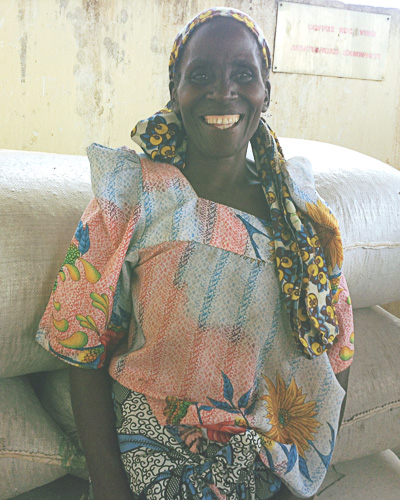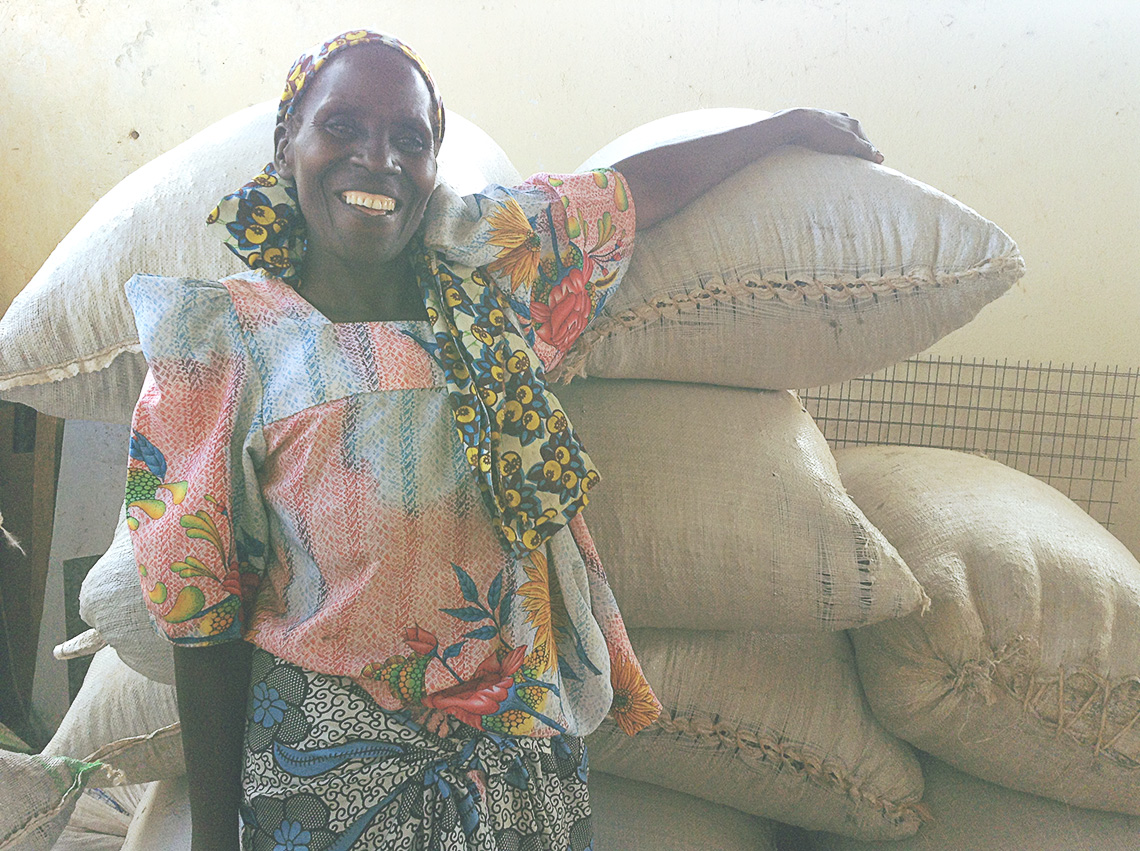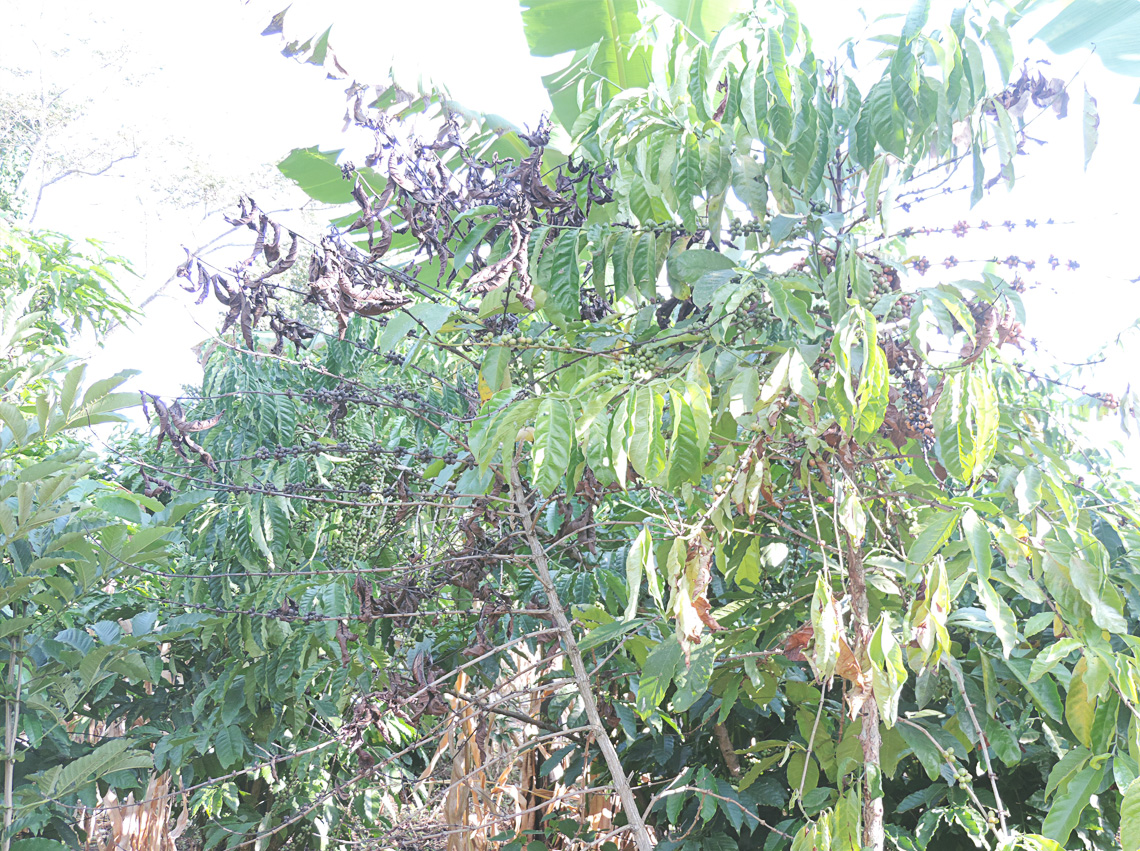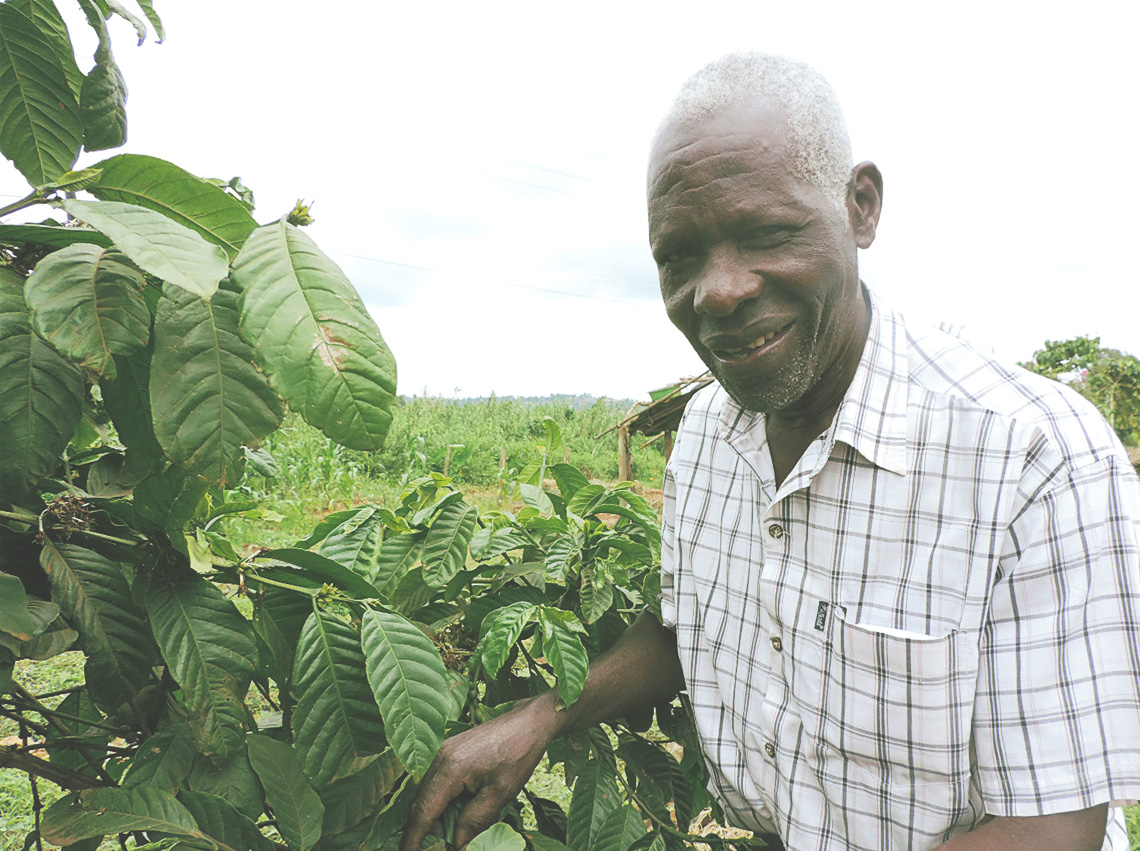Halima’s story:
How a Good Coffee Crop Can Keep Girls in School
Uganda

Name
Halima Naiga, 40
Location
Masaka District, Uganda
Farm Type
Mixed farming: bananas and cocoa
Halima Naiga left school when she was seven. “My parents did not want to waste money on educating girls”, she says. Now, Halima is determined to keep her three daughters in school, and she pays for the fees with the money she has made from growing coffee, beans and maize.
The Feed the Future Uganda Commodity Production and Marketing Activity (CPMA) is helping farmers like Halima improve the quality and quantity of their produce. Uganda’s maize, beans, and coffee production systems are largely based on smallholder production, and are characterized by low input and low output. Although roughly 85 per cent of Ugandans earn their income from farming, the country’s agriculture sector has been plagued by poor economic support. Consequently, the sector contributes less than 20 per cent of the country’s gross domestic product, and less than 10 per cent of lending goes to agriculture. Postharvest handling is poor, access to on-farm storage is limited, as is access to markets, market information, and appropriate support services. CPMA is working to address these issues.
Halima used to struggle with coffee wilt disease and twig borer which reduced her income, but thanks to a cooperative savings scheme that CPMA has connected her to, Halima was able to buy inputs to help her fight these pests. “The cooperative has been a great source of respite for me,” she comments.
Receiving help from a CPMA village agent has also been extremely beneficial to Halima.
I also learn a lot from my village agent who gives me advice on how to make more money through inter-cropping and how to get higher yields through better farming methods. For example, the village agent advised me to use organic fertilizers when I couldn’t afford to buy other fertilizers. I would like to get more capital to expand my farm and buy fertilizers.
Halima’s calls to action:
I hope the government will consider giving agricultural loans to us farmers at low interest rates in order to end poverty. Cooperatives like ours need this kind of support.
I hope the government will provide equipment for schools so that children from poor families also have the school materials they need to succeed.
The government should support women groups to start income generating activities. Their capacity should be trained to sustain themselves.







